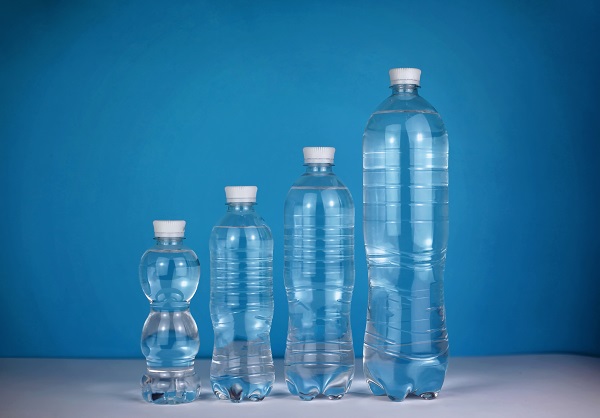Water is essential for your body to function properly, playing a crucial role in various processes, such as regulating body temperature, maintaining healthy skin, and transporting nutrients. With the importance of daily water intake in mind, this post aims to provide guidance on determining the right amount of water to consume, taking into account factors such as age, sex, weight, activity level, and climate. Remember, there is no one-size-fits-all approach when it comes to hydration.
Buy vitamins and supplements
Factors Influencing Your Daily Water Intake
Each individual has unique hydration needs based on various factors. Age, sex, weight, activity level, and climate all play a role in determining how much water you should consume daily. For instance, a physically active person living in a hot climate will require more water than a sedentary individual in a cooler environment. Pregnant and breastfeeding women also have increased water needs.
Understanding these factors is essential to establishing a personalized hydration plan. Remember that your daily water intake requirements may change over time due to changes in weight, activity level, or even the weather. Staying attuned to your body’s needs and adjusting your water intake accordingly is key to maintaining optimal health.
The Science Behind Daily Water Intake
Research on daily water intake has led to the establishment of general guidelines for adequate hydration. For example, the Institute of Medicine (IOM) recommends a daily water intake of 3.7 liters (about 13 cups) for men and 2.7 liters (about 9 cups) for women. However, it is important to note that these recommendations are not absolute, and you must consider individual factors when determining your optimal daily water intake.
The 8×8 Rule And Its Origins

The 8×8 rule, which suggests drinking eight 8-ounce glasses of water per day, is a popular guideline for daily water intake. This rule originated from a 1945 recommendation by the Food and Nutrition Board, which stated that individuals should consume 1 milliliter of water per calorie of food. While the 8×8 rule may be a useful starting point for some, it may not be appropriate for everyone.
Individual factors like activity level, climate, and body size should be taken into account when determining daily water intake. In some cases, following the 8×8 rule may lead to overhydration or underhydration, emphasizing the importance of a personalized approach to daily water intake.
The Role Of Food In Hydration

While beverages are the primary source of water for most people, it is essential not to overlook the role of food in hydration. Many fruits and vegetables have a high water content, which can contribute to your daily water intake. For example, watermelon, strawberries, cucumbers, and lettuce are all composed of more than 90% water.
Incorporating water-rich foods into your diet not only helps maintain hydration but also provides valuable nutrients, such as vitamins, minerals, and fiber. When planning your meals, consider including a variety of hydrating fruits and vegetables to support your overall health and hydration needs.
The Role Of Beverages In Daily Water Intake

Many people consume beverages other than water throughout the day, such as coffee, tea, or soda. While some of these beverages can contribute to your daily water intake, others may have a negative impact on your hydration levels. For instance, caffeinated drinks like coffee and tea can have a mild diuretic effect, which may lead to increased urine production and, in turn, a slight decrease in hydration.
When choosing beverages, opt for healthier options that support your hydration goals. Herbal teas, flavored water, and coconut water are all excellent alternatives to sugary drinks or those high in caffeine. Remember that moderation is key when it comes to consuming beverages that may affect your hydration levels.
Signs Of Dehydration And Overhydration

Being aware of the symptoms of dehydration and overhydration is vital for maintaining a healthy balance of daily water intake. Dehydration can manifest as symptoms such as thirst, dark yellow urine, dizziness, fatigue, and dry skin. In contrast, overhydration, which is less common, can lead to symptoms like nausea, headache, and swelling in the hands, feet, or face.
If you experience any of these symptoms, it may be necessary to adjust your water intake. Keep in mind that it is always best to consult with a healthcare professional if you have concerns about your hydration levels. They can provide personalized guidance based on your specific situation and help you develop a tailored hydration plan.
How To Measure And Track Your Daily Water Intake

Monitoring your daily water intake can be a valuable habit in maintaining proper hydration. One way to measure your water consumption is by using a water bottle with volume markings. This allows you to easily track how much water you drink throughout the day. Alternatively, there are several smartphone apps available that can help you log your daily water intake and even send reminders to drink more water.
Creating a routine around your water consumption can also help ensure consistency. For example, you might start your day with a glass of water, drink another glass before each meal, and have a final glass before bedtime. Find a pattern that works for you and stick to it to prioritize hydration in your daily life.
The Importance Of Individualized Hydration Plans

As highlighted throughout this post, creating a personalized hydration plan is key to maintaining optimal daily water intake. This plan should take into account your individual factors, such as age, sex, weight, activity level, and climate. In addition, it should be flexible enough to adapt to changes in your life, such as a new exercise routine, weight loss or gain, or even a change in weather conditions.
Furthermore, consulting with a healthcare professional can be beneficial in developing a tailored hydration plan. They can help you assess your current hydration status, provide guidance on the appropriate daily water intake for your specific situation, and suggest strategies for maintaining proper hydration levels.
Take Steps To Find Your Optimal Daily Water Intake!
Understanding the right amount of daily water intake for your unique needs is crucial for maintaining good health. By considering individual factors, monitoring your water consumption, and adapting to changes in your life, you can ensure that you stay properly hydrated. Remember to consult with a healthcare professional if you have concerns about your hydration levels or need guidance in creating a personalized plan. And last but not least, stay hydrated and enjoy the benefits of optimal daily water intake for your overall well-being!The Importance Of Mindful Eating: How It Can Help You Lose Weight And Improve Your Relationship With Food




